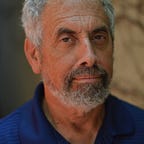LAPD Metro Patrols Shield Vulnerable Communities — Don’t Reduce Them.
If you live in low crime areas of LA County and you’re not acquainted with the fear and terror experienced by other communities, read the Los Angeles Times articles about the slaughter going on near LA’s inner city high schools.
https://www.latimes.com/projects/la-me-edu-school-safety/
Over fifty homicides occurred less than one mile from fourteen different schools in South Los Angeles over a five-year period. These are areas where children are cut down in the crossfire of gang warfare, drug turf disputes, and drive-by shootings. These are the places where residents are afraid to walk the streets and where it is not unusual to be awakened by gunfire. These are the streets where family members live who are scarred for life by the violent death of someone they love.
What happens when so much violence impacts a community? What are the police supposed to do? What would you want them to do?
What the LAPD does is increase specialized patrols in those communities with resources deemed capable of reducing the homicides and violence. Earlier this year, the LA Times chose to publish an investigation about the disproportionate stops of African-Americans by these LAPD Metro units.
https://www.latimes.com/local/lanow/la-me-ln-garcetti-lapd-metro-20190206-story.html
After hearing cries of “racial discrimination”, LA Mayor Garcetti ordered LAPD Metro to put the brakes on this aggressive patrolling. Although previously recognizing the community’s need for increased deployment, the Mayor now concludes that the patrol stops might reveal discriminatory behavior on the part of the police. He relied on one allegation: that while African Americans constitute only 31 percent of the South LA population, they were stopped 65 percent of the time.
What the Mayor chooses to ignore is that racial disparity is not necessarily caused by racial discrimination. Economist and author, Thomas Sowell, addresses this issue in great detail in the 2nd edition of his book: “Discrimination and Disparities”. He specifically warns against assuming blacks are racially targeted for arrest when the numbers of blacks arrested greatly exceeds their proportion (13 percent) of the US population. Sowell points to the fact that the percentage of black homicide victims is a multiple of the percentage of blacks in the general population, and that the vast majority of those who murder these victims are themselves black. He concludes that it is no surprise that the arrest rate of blacks for homicide far exceeds that of white arrests.
Many examples exist of racial disparities not reflecting racial discrimination. While African Americans make up 12 percent of the US population, they constitute 75 percent of the NBA team rosters. Thirty-seven percent of Nigerian immigrants living in the United States, compared to 19 percent of white Americans, have bachelor degrees.
Such disproportionate racial outcomes do not represent racial discrimination. Nigerian immigrants outperform white Americans educationally as a group. Blacks outperform whites in the highest level of NBA professional basketball, and the disproportionate amount of crimes committed by African-Americans in South Los Angeles lead to disproportionate stops, arrests, prosecutions and incarceration of…African Americans.
Accusations of discrimination don’t end with traffic stops. A past president of the North Carolina chapter of the NAACP, complained that investigations involving black homicide victims resulted in a lower percentage of arrests than when the victims were white. He alleged that such discriminatory investigations left black families without a sense of justice and presented this disparity as proof of discriminatory police detective practices. He made no effort to consider other explanations for this disparity, such as witness intimidation or an anti-snitch culture surrounding gang homicides.
If tomorrow all those who murdered African Americans were successfully prosecuted, some would decry it as discriminatory “mass-incarceration” in that 90 percent of those who murder blacks are black. The claim of injustice for not solving homicides would be overwhelmed by the cries of mass- incarceration for solving them.
If disproportionate arrests, prosecutions and incarceration, as well as disproportionate homicide clearing rates are not based on discrimination, what about the prevention of crime? Why aren’t the beefed-up aggressive patrols previously characterized as discriminatory not seen as they really are: an effort to provide the safety and protection that other communities enjoy? Why isn’t it perceived as an effort to shield a vulnerable community that loses its sons and daughters to rates of murder unheard of in other parts of the County?
Nobody wants to be stopped by the police in the course of an aggressive anti-crime patrolling strategy. But if the price of protecting community youth is through the kind of enforcement LAPD Metro provides, why shouldn’t the LA Mayor continue to endorse it? What he failed to do before constraining the deployment, was determine how many young African American lives have been saved by this effort. How much additional tragedy and trauma suffered by a community, as depicted in the LA Times articles, has been deterred by the pro-active deployment of LAPD resources? The Mayor’s response will sacrifice lives by unsubstantiated accusations of racial discrimination. Law enforcement isn’t discriminating against African Americans; it is providing more resources and effort in an attempt to end premature funerals of victims shot down a mile from their high school.
Those who live in low crime communities, with little violence impacting their families, should be thankful not to need this type of patrolling. But if such violence ever appeared there, those who can afford private security and million dollar homes would quickly use their political influence to secure additional police resources to defend their loved ones. They would demand that the police prevent murder, not merely fill out homicide reports and wait for the coroner to arrive.
